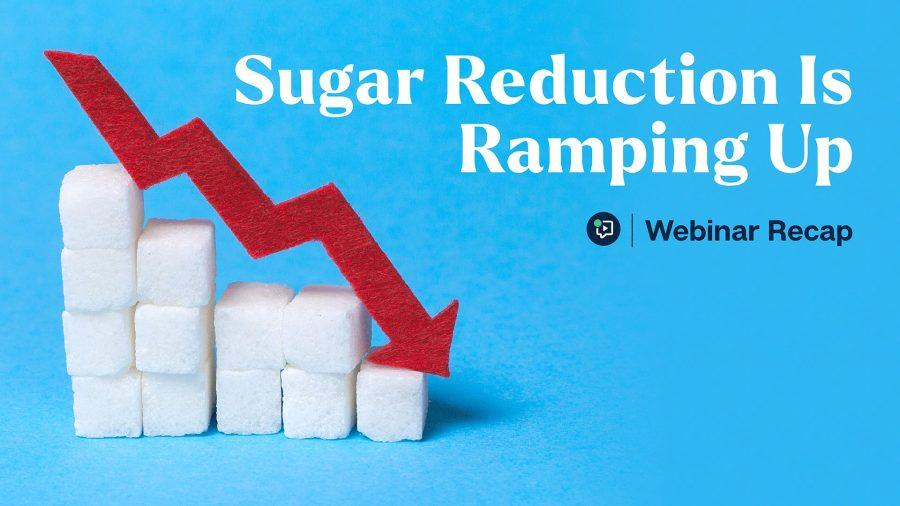In a world where convenience often reigns supreme, the sweet allure of sugar can be hard to resist. From our morning coffee to late-night snacks, added sugars have woven their way into our daily lives, often without us even realizing it. However, as we become increasingly aware of the far-reaching consequences of a high-sugar diet, it’s time to take a serious look at how sugar is impacting our health. Research links excessive sugar intake to a myriad of health issues, including obesity, type 2 diabetes, heart disease, and even certain types of cancer. In this article, we will explore the importance of reducing sugar consumption, the benefits of making this change, and practical strategies to help you embark on a journey toward a healthier, more balanced lifestyle. It’s time to reclaim our health—one sugar cube at a time.
Table of Contents
- Understanding the Hidden Dangers of Excess Sugar Consumption
- Recognizing the Link Between Sugar Intake and Chronic Health Issues
- Practical Strategies for Reducing Sugar in Your Daily Diet
- The Long-Term Benefits of a Low-Sugar Lifestyle for Overall Well-Being
- Concluding Remarks
Understanding the Hidden Dangers of Excess Sugar Consumption

The consequences of excessive sugar intake often lurk beneath the surface, manifesting in ways that can be devastating to your health. Many people grapple with the misconception that sugar is merely an energy source, but it has far-reaching effects on the body. Sugar consumption can lead to obesity, which has its own set of health issues such as heart disease and diabetes. Additionally, it contributes to insulin resistance, paving the way for metabolic syndrome. When you consume high amounts of sugar, your body responds by producing more insulin, which may eventually diminish the effectiveness of this critical hormone.
Moreover, sugary foods can create a cycle of cravings that are hard to break. The immediate gratification of sweet treats is often followed by energy crashes, increasing the likelihood of snacking on more sugar-laden items to regain that fleeting energy. This not only perpetuates poor dietary habits but also leads to inflammation within the body, which is associated with chronic conditions such as arthritis and cardiovascular disease. Understanding these hidden dangers emphasizes the importance of making conscious choices about your dietary habits and recognizing the profound impact that reducing sugar intake can have on long-term health.
Recognizing the Link Between Sugar Intake and Chronic Health Issues

Excessive sugar intake has been linked to a multitude of chronic health issues that can significantly impact your well-being. Research indicates that high sugar consumption can contribute to conditions such as:
- Obesity: Sugary foods and beverages add empty calories that can lead to weight gain and obesity.
- Type 2 Diabetes: Frequent spikes in blood sugar from sugary foods can lead to insulin resistance.
- Cardiovascular Disease: High sugar diets are associated with increased risk factors for heart disease, including high blood pressure and inflammation.
- Cavity Formation: Sugar is a prime culprit in tooth decay, leading to serious dental health issues.
Moreover, the effects of sugar extend beyond physical ailments. Psychological health can also be compromised with excessive sugar consumption. A diet high in sugar has been linked to increased rates of depression and anxiety. This connection raises concerns as sugary foods can create a cycle of temporary pleasure followed by energy crashes. The following table summarizes the potential chronic health issues linked with high sugar intake:
| Health Issue | Impact |
|---|---|
| Obesity | 10-30% increase in risk |
| Type 2 Diabetes | Increases insulin resistance |
| Cardiovascular Problems | Higher cholesterol levels |
| Mental Health Issues | Elevated anxiety levels |
Practical Strategies for Reducing Sugar in Your Daily Diet
Making conscious choices is essential in your journey to cut down on sugar. One effective strategy is to read labels carefully. Many packaged foods, even those marketed as healthy, can contain surprising amounts of added sugars. Look for products with lower sugar content and prioritize those that use natural sweeteners, such as honey or maple syrup, in moderation. Additionally, cooking at home allows you to control the ingredients in your meals, making it easier to minimize sugar. Experiment with spices and flavorings like cinnamon, vanilla, or citrus zest as alternatives to sweeteners in your recipes.
Another practical approach is to diversify your snacking habits. Replace sugary snacks with a variety of wholesome options that satisfy your cravings without the excess sugar. Consider incorporating:
- Nuts and seeds for healthy fats and protein
- Fresh fruits, which contain natural sugars along with fiber
- Vegetable sticks with hummus for a savory alternative
To further support your efforts, keeping a food diary can be beneficial. Tracking your intake helps identify hidden sugars in your diet and promotes mindful eating. Creating a simple chart of your daily food consumption can lay the foundation for healthier choices, making it easier to see where adjustments need to be made.
| Snack Option | Sugar Content (per serving) |
|---|---|
| Nuts (Almonds) | 1g |
| Carrot Sticks with Hummus | 2g |
| Apple Slices | 10g |
The Long-Term Benefits of a Low-Sugar Lifestyle for Overall Well-Being
Adopting a low-sugar lifestyle can lead to profound long-term health benefits that extend far beyond weight management. By significantly cutting sugar from your diet, you can enhance your body’s metabolic processes, leading to improved energy levels and overall vitality. This lifestyle choice can also reduce the risk of chronic diseases such as type 2 diabetes, heart disease, and certain types of cancer. Notably, maintaining stable blood sugar levels can help mitigate mood swings and enhance mental clarity, creating a more stable emotional state and mental well-being.
In addition to physical and mental health improvements, a low-sugar diet encourages healthier eating habits. Consuming fewer sugary foods often leads to increased intake of nutrient-dense fruits, vegetables, and whole grains, providing essential vitamins and minerals required for optimal functioning. The long-term benefits of this dietary shift can be categorized as follows:
| Benefit | Description |
|---|---|
| Improved Heart Health | Lower risk of cardiovascular diseases through better cholesterol levels. |
| Enhanced Mental Clarity | Better concentration and reduced brain fog from stable blood sugar levels. |
| Increased Energy | Consistent energy levels without the peaks and crashes associated with sugar. |
| Weight Management | Natural regulation of appetite and weight through healthier food choices. |
Concluding Remarks
transforming your health starts with making informed choices about what you consume, and reducing sugar intake is one of the most impactful changes you can make. The evidence is clear: excessive sugar consumption can lead to a myriad of health issues, from obesity to diabetes and beyond. By taking conscious steps to limit your sugar intake, you not only enhance your physical well-being but also pave the way for improved mental clarity and emotional stability.
As you embark on this journey, remember that change doesn’t have to happen overnight. Start by setting realistic goals, educating yourself about hidden sugars, and seeking alternatives that satisfy your taste without compromising your health. Surround yourself with a supportive community and celebrate small victories along the way.
Your health is your greatest asset, and choosing to reduce your sugar intake is a powerful step toward reclaiming it. Embrace this change, and watch as your energy levels soar, your mood stabilizes, and your overall well-being flourishes. The road to better health may be challenging, but the benefits are well worth the effort. Here’s to a healthier, more vibrant you!



